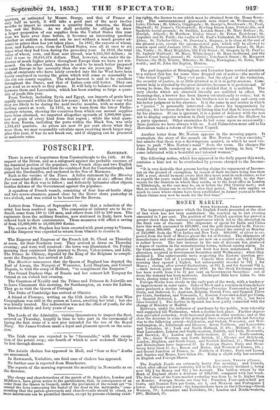he gaol inquiries at Birmingham and Leicester have revived attention
to a subject that has for some time dropped out of notice—the merits of "the Great Unpaid." They visit gaols; but the object of the visitation, the security of justice, is as little attained as it is in petty-sessions. Com- petent help is rejected by the great intuitive, because it is professional. If wrong be done, the responsibility is so divided that it is nullified. The very checks which are observed literally are nullified in effect. On licensing-day, a brewer has been known ostentatiously to retire ; but it would have been uncourteous in his brethren not to adopt and carry out his better judgment in his absence. It is the same in any matter in which a " justice " is personally interested—he shows his magnanimity by retiring; his brethren show theirs by letting him feel that he loses nothing by his absence. If one is ignorant, it is a point of delicacy with the rest not to display superior wisdom in their judgment—unless the Shallow be a party opponent. Other enormities do but come upon us occasionally : these justices we have always with us. Lord Palmerston must add to his Herculean tasks a reform of the Great Unpaid.


























 Previous page
Previous page